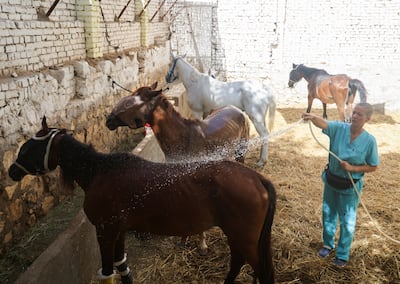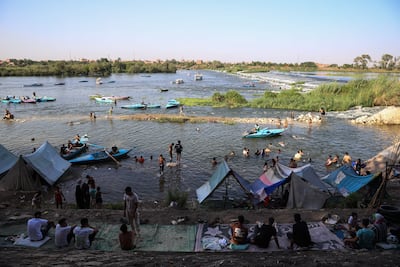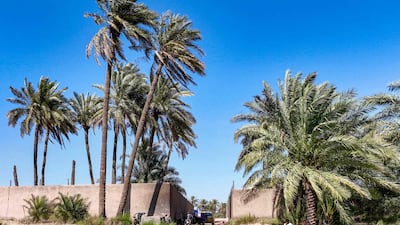Lebanese pupil Mohammed Qassem must improvise to cope with the heatwave in his home city of Baalbek, in the Bekaa Valley.
He studies while sitting directly beneath a ceiling fan and sleeps on the floor or on the balcony in an effort to keep cool as temperatures rise.
It is not usually this hot in June, but temperatures this month have already hit 38°C across most of Lebanon’s plains. This is 8°C higher than the average temperature in June last year.
While other parts of the Middle East have recorded hotter weather, people in countries such as Lebanon, Iraq, Egypt and Jordan face challenges when trying to cope with the heat.
Lebanon has faced chronic electricity shortages for decades, with many Lebanese blaming corruption within the ruling elites.
Years of rolling power cuts have left the majority in Lebanon to rely on privately owned generators, an additional but necessary expense in a country gripped by an economic crisis.
“We don’t have air conditioners, but we have a total of four fans,” said Mr Qassem, 18. “One is always in the living room, two are in the bedrooms and one is moved from room to room, depending on demand.”
This arrangement is common in Baalbek, one of Lebanon's most impoverished cities.

“Most of us try to survive by using fans, but there are some people who can’t even afford that,” said Mr Qassem, who will sit his final high school exams this month.
“The only way to study is directly under the fan, otherwise it’s intolerable. Summer nights are usually a little less hot outside so I sleep on the balcony, but that means I get eaten by mosquitoes.
"So, it’s either I sweat on the floor or get attacked by mosquitoes on the balcony. There are no good options in the summer.”
It is not much different in Iraq, where temperatures can soar above 50°C during the peak of the summer. Temperatures are already hovering around the low 40s and it is forecast to hit 47°C in Eid Al Adha.
Despite its rich oil resources, the country also faces widespread power cuts. Iraqis also attribute the electricity shortage to corruption, as well as years of conflict.

“I can’t remember the last time we had a full day of electricity,” said Hassan Salim, a father of three who lives in Baghdad. “With the temperatures rising, it feels like we’re living in an oven. Even at night, it’s hard to sleep because it's too hot and there is no power to run the fans.”
Like many Iraqis, Mr Salim, who works as a taxi driver, relies on privately owned neighbourhood generators to power his home. But the high cost means this is an unsustainable option for the average family.
“We’re spending a significant portion of our income just to a get few hours of electricity and we can’t run all ACs given the limited electricity we buy,” he said.
“Sometimes, we spend the day going back and forth between my house and my parents’ house, but there are times when there is no electricity in either one. When this happens, I put the kids in the car while the AC is on, so they can get some sleep.”
Temperatures in Cairo hit 45°C on Saturday, nearly 10°C higher than the average in June last year. The heat and Eid Al Adha holiday meant the Egyptian capital's usually crowded streets were far quieter.

The heat also prompted the state weather bureau to issue an advisory, urging the elderly and children to stay at home. It advised the public to avoid being out in direct sunlight because of the heat.
In Aswan, the nation's southernmost city, temperatures rose to 48°C on Saturday, significantly above the average in June last year.
The heat has also taken a toll in Jordan. Farmers were forced to turn off tractors this week, the height of the ploughing season.
“It is not just too hot for the drivers, it is too risky to run the tractors’ engines without damaging them in this heat,” said Yasser Al Hemoud, who owns an olive grove.
Temperatures across the kingdom have risen at least 8°C above the average June temperatures in previous years, with the state meteorological department saying it will continue to get hotter over Eid Al Adha.
It hit 40°C on Friday in the usually cooler capital city of Amman, while temperatures in the Red Sea resort city of Aqaba and the Dead Sea region have reached the mid-forties.
The increasing temperatures prompted Jordan's metrological authorities to issue instructions for the public, including a warning to parents to avoid leaving babies in cars alone “even for a short while”.

